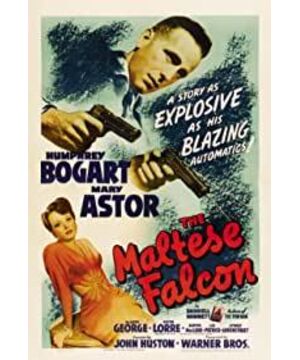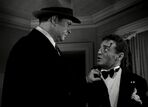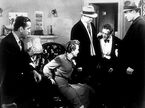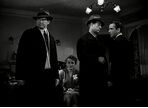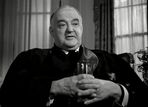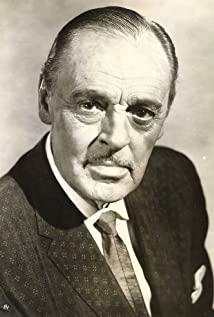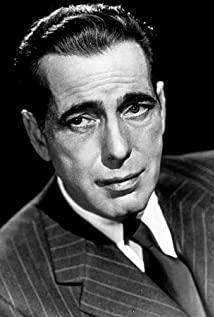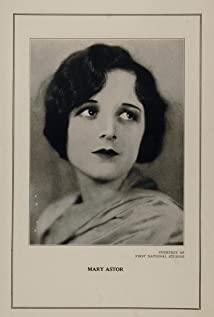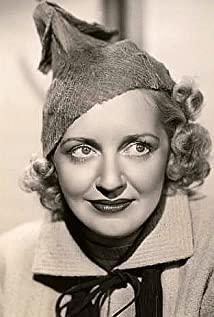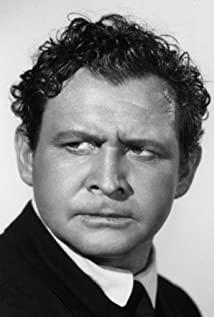No matter how you look at Nightcrawler, Bogart is always a nightcrawler.
——Henri Agel
I kissed him, but I never knew him.
——Ingrid Bergman (Ingrid Bergman)
On October 17, 1939, Warner Company's first-line star George Raft vowed to write to company boss Jack L. Warner, complaining angrily:
When I came to your house, you told me... I don’t have to play those dirty villains... I told you at that time that I was afraid that the studio would let me play Humphrey Bogart. And you replied to me that I would never have to play the role of Humphrey Bogart.
Only 5 years ago, Humphrey Bogart had just signed a contract with Warner Company as a star; only 5 years later, almost everyone at Warner Company hated him. Five years ago, producer Arthur Hopkins photographed the little actor who was still tumbling on Broadway and asked him to play the role of the killer Duke Mantee in The Petrified Forest. Nevertheless, he is still not very optimistic. This ordinary-looking star: "When I saw this actor, I hesitated for a while, because he is the kind of actor I would never admire. He is a young and mature boy, and he has been on stage for most of his life. His career is to wield a tennis racket in white pants on the stage. He doesn't look like a cold-blooded killer, but his voice (dry and tired) is very similar. This is Mantee's voice." But when Warner When the company bought the copyright to the play and wanted to make it into a movie, they still refused to use Humphrey Bogart. They hope their first-line star Edward G. Robinson can play the villain; fortunately, Bogart’s friend, Leslie Howard, who is also the protagonist and producer of the film, has a telegram:
To: Jack Warner. I insist that Bogart play Mantee. Without Bogart, there would be no signing. LH
Jack Warner compromised, but he didn't want to let Bogart go. He told Bogart that he must take a stage name, and that name is really silly now. Bogar stubbornly refused.
As a result, the most well-known and most worshipped name in the history of film is thus preserved. Bogar received a middle-class salary of US$550 a week from Warner Corporation, and became a villain with pleasure. He is indeed a badass. He is a playboy, and in fact, his third wife Mayo Methot thought so. The alcoholic couple tortured each other in a manner that was similar to abuse. Slaps and throwing furniture at each other were already commonplace. On several occasions, she even set fire to their residence and stuck a knife on him.
In the studio, Bogart is still the target of public criticism. No one wants to play roles that "should be played by him". In 1939, George Raft refused to play the role of "It All Came True" because it was a "a role that Humphrey Bogart should play"; afterwards, both George Raft and Paul Muni refused to play In "High Sierra" (High Sierra), the heroine of the film Ida Lupino (Ida Lupino) "reduced" to the point where she could only be partnered with Bogart, so when she was selected to star in the next movie "The Bay In Out of the Fog, she claimed that if the studio still chooses Bogart and her partner, she can only resolutely resign.
In 1941, Warner wanted Bogart to star in "Manpower" with George Love. A few days later, Bogart sent a telegram to the producer Hal B. Wallis, with anger and helplessness between the lines:
Dear Hal: I am purely a friend of George. I know, because I want to star in this movie, so he refused to join...I am very sad, because this is the second time I can't participate in a good film and perform a good role, and this is only because there is an actor Refused to cooperate with me.
Therefore, before Bogart became Bogart, he was on the verge of unemployment. No one wants to cooperate with this grumpy alcoholic. "No one can discuss with me gently, I always turn it into a dispute. I think it must be because of my voice, or my arrogant face-there must be something that makes everyone angry. . No one still likes me when they see me. I think this is why I always play badass. "
Perhaps, it is destined, or the times dictate, the obstacles in Bogart’s artistic career have become the obstacles instead. His pushing hands, all his anger, gloom and irritability, have made this new generation of stars. In late 1941, Warner & Co. decided to remake Dahir Hammit’s famous book "The Eagle of Malta", directed by John Huston, who first directed the microphone, and the role of the private detective Sam Spade in the play was still the famous George. Ralph. As always, George Ruff, who was too wise to protect himself, still wrote to Jack Warner and complained:
As you know, I strongly believe that the piece of "The Maltese Eagle" you asked me to shoot is not an important movie. Therefore, I must remind you that before I signed a new contract with you, you promised me that you would not ask me to act in any film unless it was an important film.
George Love didn't have the slightest confidence in the new director John Huston, and believed that this was just a remake of nothing new at all. The role of Sam Spade finally fell into Bogart's hands in desperation.
Although there is no right to cast, John Huston may still be secretly happy that the studio chose Bogart. The friendship between the two drunks began in "The Nightmare Mountains", John Huston was the screenwriter of this movie, and his father, legendary actor Walter Huston partnered with Bogart in the film. Bao Jia admires Huston, he obviously thinks this is a talented screenwriter and director. For an actor who likes to drink and fight, there is nothing more suitable than a director who likes to drink and fight.
There is no doubt that Huston is the most important person in Bogart's life. It is his role of Sam Spade in "The Maltese Eagle" that makes Bogart a new generation of personality actor in one fell swoop. We have no way of knowing whether Bogart or Huston gave this character such an ambiguous charm, but we are very clear that without Bogart, "Malta Eagle" would become a weak movie.
This is a cynical lonely man. The world is constantly attacking him, and he must defeat it in order to control his life. No one can believe it, "Everyone has something to hide," he once said. Spade himself is such a person who relies on cover-ups and constant changes of identity to maintain the remnant. He speaks viciously, his eyes are cold, and he observes the world without emotion, just as Bazin accurately described: "He is not Gary Cooper or Douglas Van Punk! Whether he plays a villain or a detective, his success is first due to He can hit the key directly, followed by keen insight. His attack efficiency proves his strength and his ability to cope. He is always just right, precise and powerful, and most importantly, at the right time. He does not make many shots. Too much, but it can always make the other party hurried. Then, the revolver that fell into his hand became a weapon of mind, and all arguments were instantly dumb."
He wanted to be close to others, but his suspiciousness and desire to dominate overturned this. Falsely beautiful. Like the character of Sam Spade, Bogart always shrinks his hands nervously, always ready, and when someone questions his authority, he will twist his fingers and rattle. When the enemy is defeated, he will smile sullenly at him, or spit a plume of smoke into his face.
This almost obsessive behavior is not so much for attacking people as it is for self-protection. For the masculinity that is at stake. In the film, when Spade kissed Brigid, the femme fatale in the play for the first time, he squeezed her throat deeply with his hands. A tender moment turned into a terror, easily reminding people of Bogart and his first three wives. The relationship between. He is always avoiding dangerous intimacy, reaffirming men's physical conquest of women with violence. Indeed, no one can understand Bogart. "Every time he speaks, it is hard to figure out. His chin makes one think of the mouth of a living dead body, a sadness that is about to disappear with a smile. The man's final expression. It was a genuine smile of death."
If Bogart is only a concrete representation of masculinity in the relationship between Spade and Brigid, then this metaphor of masculinity has become an abstraction between Spade and Peter Lowe’s Cairo: when they first During the encounter, Spade was licking cigarette paper to make cigarettes, while the latter was stroking the umbrella in his hand with frivolous steps, which was obviously a gay character. After that, Spade slapped Cairo with a cigarette in his mouth. In Bogart’s wonderful interpretation, this scene has a certain ambiguous sadomasochistic/masochistic nature. The character Spade fears the loss of his masculinity so much that he turns his fear of homosexuality into a strong Sexually suggestive scenes.
Whether it's Spade in "The Maltese Eagle" or Marlowe in the equally famous "Night Dreams", Bogart's characters are always tough, introspective, emotionally suppressed, and like cigarettes and whiskey; He was always the man whose fate made the decision, and the lines on his face left by alcoholism revealed the "probation corpse that resides in each of us." He is not only the god of death, but also a desperate resistance to the god of death. Those who understand Bogart such as Truffau and Bazin will always point out the inevitability of Bogart's fame: his screen image is always related to the general depression of the will of the United States after the war. He was destined to be tied together by the genre called film noir. His existence is not so much to show contempt for the values of the middle class, as it is to exist for the sake of existence. In the dirty underground world, or in the same dirty Hollywood, he exists to survive. No one can understand the truth and bitterness better than Bogart. "As soon as he came out, it was already another dimly lighted dawn; after he was lucky enough to win the fierce battle with the gods, his face was covered with what he saw, and all the inside information he knew weighed down on him. Load, he has escaped ten times, don't ask, he will hold on again for us." Bazin said emotionally.
Let us return to Bogart's time again. His time is not the time of John Wayne, he is exactly the opposite of John Wayne. If Wayne’s Western Cowboys are active, triumphant, and fearless, then Bogart is passive, battered, and pathologically curious. He was never handsome, even a little old-fashioned. Well, maybe it’s because God gave him this ordinary figure and appearance and that bad temper: he is short enough to be able to express the irritability of gangsters; he is tall enough to preserve a little dignity of a western cowboy; his body Hard, so he can be as agile as a hero in a city movie; of course, who can forget the iconic scar on his mouth, so his speech is always so unclear, but always like The witty remarks of the blaster are endless, and the words are not forgiving.
Bogart, maybe it will always be a mystery.
"Play it again, Sam."
—The gentleness of the king of coolness
In 1972, Woody Allen made a movie that paid tribute to Humphrey Bogart and named it "Play it again," Sam. This may be the most famous line Bogart said, but in fact Bogart has never said this sentence. This legendary line comes from "Casablanca." Rick in the film is one of the most human roles that Bogart has played in his life. When in our imagination, Bogart will always be the king of coolness, the tough guy indulged in telecommunications and cigarettes, and the existentialist who hovered above the boundary between good and bad, the character in "Casablanca" Bogar sank into the entanglement between the past and reality, and broke apart in the dispute between personal emotion and nationalism.
"What is your nationality?"
"I am an alcoholic."
Before 1942, Bogart was not an alcoholic, nor a patriot. To some extent, the outbreak of the Pearl Harbor incident contributed to the transformation of Bogart's career. If in World War II, what the Americans had to face was a brutal, cunning, and dark villain like Hitler, then in films such as Across the Pacific, Bogart was Hitler’s opposite. He is also his twin brother at the same time. He is equally cruel, cunning and gloomy, full of hostility and distrust of democracy, but still stands on the side of the United States at a critical moment. Bogar suddenly turned from a villain to a hero, but only "Casablanca" erased the coldness of the cynicist and put him on the tenderness of the night.
However, for the "notorious" Ingrid Bergman, Bogart is still the private detective Spade. "I kissed him, but I never knew him." She complained, "He walked out of his dressing room, finished his role, and then left." Every filming is regarded as the star of the romance game, Bogart seems to be a stoic ascetic. Of course, this time, Bergman didn't even know who he should love. "Casablanca", the greatest movie in film history, was at first a grind shot. The actors could not even determine the script for the next day after filming the scenes of the previous day. Bergman asked the director Curtis from start to finish whether she should love Rick played by Bogart or Victor played by Paul Henry. "Try to keep an ambiguous attitude between them." Curtis replied. Well, a potential story in film history was killed in this way. There was no spark between Bergman and Bogart. What's more, Bogart was a few centimeters shorter than Bergman. He must wear height-enhancing shoes and Bergman every day. The show. Many years later, when Bogart met Bergman again, Bergman was already the wife of Italian director Rossellini. "You used to be a good actor," Bogart said sarcastically, "What are you doing now?" "A happy woman."
In Bogart's life, there are many legendary actresses who have worked with him, but few can sparkle with him. His screen image seems to be infinitely close to himself, which is always retreating. But it is often in these unpleasant experiences that Bogart's screen image has been softened to a certain extent. In 1954, working with Audrey Hepburn on "Sabrina" (Dragon and Phoenix) was a painful experience. He hates Billy Wilder and thinks he is not suitable for this role; he also hates the innocent Audrey Hepburn, he thinks this actress in Givenchy ready-made clothes can't act at all, only show off her figure and Innocent big eyes. Naturally, Audrey Hepburn is immersed in her blind love with William Horton, the second actor in the film, so reality and fiction once again contrast with each other. Hepburn in the movie is also crazy about Holden, and Bogart’s uninteresting cold-faced brother is always just a boring embellishment. When Holden drives a famous car and holds champagne, Bogart is just A slave to capital data. In "Dragon and Phoenix", Bogart becomes his antithesis. He is the ultimate symbol of capitalism, always living in the frenzied calculation of costs and profits, but it is Bogart's abandonment of all this and his embrace of love at the end that makes this character the gentlest character in Bogart's life.
The collaboration with another Miss Hepburn took place in 1951. The veteran Catherine Hepburn obviously liked Bogart more. However, at the beginning, they were not the first choice. This was originally a film prepared for David Niven and Bette Davis. At the insistence of producer and director John Houston, it became a part of Bogart’s film career. Another milestone. Bogart and Catherine Hepburn never worked together, but "The Queen of Africa" made them lifelong friends. The main scene of the film is completed in Congo, Bogart and his wife Lauren Bacall go together. For Bakauer, the experience of filming "The Queen of Africa" is undoubtedly a pleasant one. He spends almost every day in the thrill of hunting and adventure, but Bogart is not the kind of Hemingway man, he can only work with alcohol. Every day in the sweltering heat. But Hepburn's optimism was beyond Bogart's expectation, "She doesn't drink water at all, she survived that time like a vacation in Connecticut."
No matter how hard the shooting conditions are, John Houston, an old friend, once again proved that he is Bogart's lifelong bole. "The Queen of Africa" is Bogart's first color film. This is the first time that Bogart has been seen on the big screen. For most movie fans, Bogart will always live in a black and white world. His world consists of low-camera shooting, low-key photography, and rainy night streets, but the excellent Technicolor photography of "The Queen of Africa" proves that Bogart’s wild rules of survival are not only suitable for the urban criminal jungle, but also suitable for the savage. The original world. However, it is a bit ironic that although Bogart is always remembered as a modern urban antihero, he understands the corruption of modern civilization, and treats him like an old cynicism, but it is the man who really won him the Oscar. The messenger who connects barbarism and civilization in this movie.
Of course, who can forget the well-known screen story between Bogart and Lauren Bacall. In 1944, he was 45 years old, while she was only 19 years old. She is just a model, and he is already the No. 1 actor of Warner. Bekauer was invited by Howard Hawkes to interview the heroine of "To Have or Have Not" (To Have or Have Not) and introduced her to Bogart. Afterwards, Bogart met Bekauer and said to her: "I just watched your interview. We will definitely be very interesting together." So Bogart started his first and only screen romance. In the beginning, it was a painful tug of war. Bogart’s wife was still arguing, and Howard Hawks was also jealous on the other side. But Bogart still conquered Bakauer with his sincerity and outstanding acting skills. Finally, they married low-key in 1945. In 1949, they gave birth to their first son and named him Steve. This is exactly the character Bogar played in "The Heroine of the Rivers and Lakes". Their married life is sweet but short. In the mid-1950s, Bogart became thinner and thinner, and his long-term alcoholism finally put him into the arms of death prematurely. He is a tough guy, and he never regrets the choices he made. Therefore, people remember that the last sentence he said was: "I shouldn't drink Scotch, I should drink Martini.
" Play it again, Sam. "Like, we would rather believe what Bogar said. Because of this, it is the gentle testimony of this tough guy.
View more about The Maltese Falcon reviews


